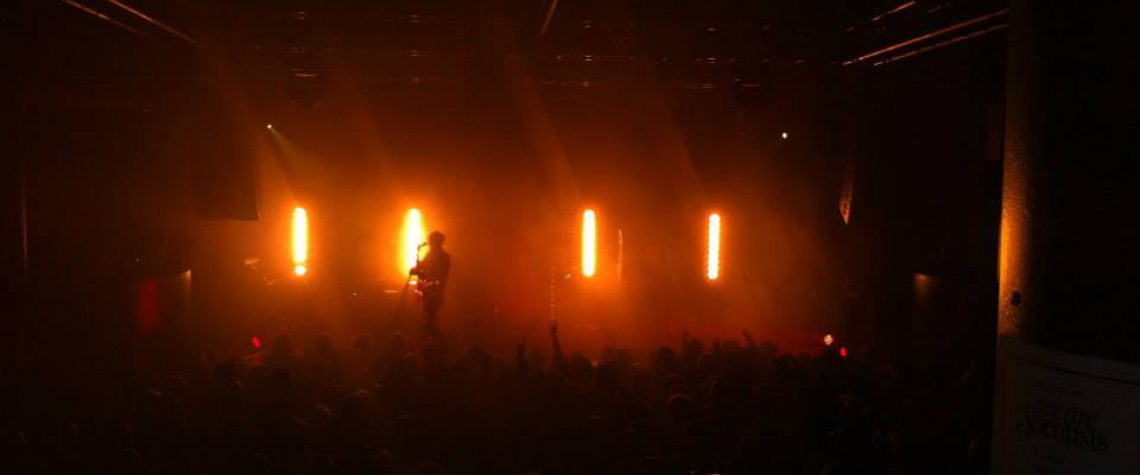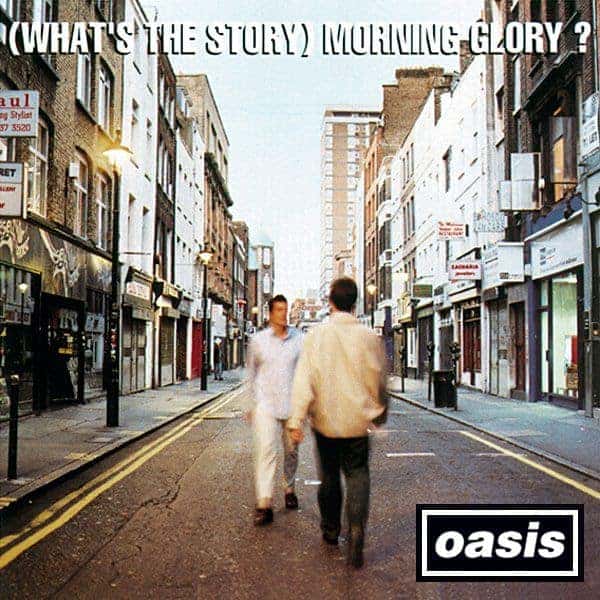“This is history, right here, right now”
Noel Gallagher of all people knew how true that was. Stretched out across a Hertfordshire pasture in August 1996 were 125,000 of the 2.5 million people who’d applied to come and see him, his brother and the rest of Oasis: A band discovered in a Glaswegian dive four years earlier were now launching the outdoor musical event of the decade.
Far from being intimidated, the siblings rode on a hubristic air of triumph, a conviction squaring itself with the idea that briefly they were treading in the footsteps of the idolised John, Paul, George and Ringo. Over those two nights, or maybe the whole summer, it could reasonably be argued they were more popular than Jesus.
There were many reasons for this. Britpop. Blur. Blairism. Maybe too it was their alluring chaos, as the ever fractious kin’s ying and yang threatened constantly to disintegrate. If that came to pass then they’d at least have a legacy cemented in the public’s eyes by (What’s The Story) Morning Glory?, their second album of which 347,000 copies had flown out in the first week of release, one that would go on to become the fifth best-selling record in British music history. To all the other B’s, you could now add box office.
All of that was to come in late 1994, when after a gig at Hamburg’s Markthalle the various band members were summoned onto the tour bus to find Gallagher senior about to play them some new material with just a guitar for company; these were to be the basis of their follow up to Definitely Maybe. Even on first hearing everyone was moved – so good were they it was reckoned that Paul “Bonehead” Arthurs wept for joy.
Natural momentum then took over. Twelve months prior the idea of a Christmas single from the less than angelic upstarts would’ve seemed ridiculous; now Whatever, complete with its chamber-ensemble strings, had to be held off top spot in the festive charts by Mariah Carey. By April of the following year Some Might Say – written as direct response to Suede’s Animal Nitrate – became their first number one single at a time when these things just about still mattered. To celebrate, they sacked long-suffering drummer Tony McCaroll and almost instantly replaced him with Alan White.
When he and his new mates joined producer Owen Morris at Rockfield Studios for the first recording sessions together they were impressively prolific, turning out a track every twenty four hours until, for reasons few afterwards seemed to agree on, the you-know-who’s ended up assaulting each other with a cricket bat and Noel promptly left the band (Again). Three weeks later our kid and our kid had patched things up (Again) and in a matter of weeks, they had a finished product Morris was noisily describing to anyone who’d listen as “The bollocks”.
What in fact was bollocks took shape as the Battle of Britpop. A joke at first, it was a summer skirmish between the two increasingly hostile factions of a movement laced with nationalist undertones and fueled by political opportunism. Here Blur’s next single Country House was set against Roll With It, a winner-takes-nothing head to head largely for the collective jollies of tabloid hacks, along with the suits at EMI & Sony. Not understanding the damage they were self-inflicting, The Colchester mockneys stole the hollowest of victories.
October the 2nd duly arrived and Morris’ assessment proved to be both wrong and right. These expansive new tracts unquestionably made Noel for one of the populist writers of his generation; now allowed the space and time in his work he’d always craved, this gift had mellowed sharply, giving the epic Champagne Supernova and Don’t Look Back In Anger an endless sense of reverberation. Paul Weller contributed backing vocals and a perfect guitar solo to the former, a clear role reversal with apprentices assuming the guise of masters, whilst the countryfied, string laden Cast No Shadow was written for a vacillating Richard Ashcroft, himself not far off being burdened with fame’s mud and trinkets.
On the flipside, nearly all of the band’s lairy menace had vanished. This was partly due to the inclusion of songs which seemed to be there specifically to provoke the critics; both Hello and Roll With It were clunky, lowest-common-denominator skits daring people to have a go, whilst She’s Electric just scraped above their low tide mark.
Also deepening was the schism between the brothers themselves, with one metaphorically sketching late era Beatles where the other dug on mid-period Stones. The album’s inconsistency was even more pointed given that its chief scribe was nonchalantly throwing out proto-classics such as Acquiesce and Talk Tonight as B-sides, a man in the midst of an Imperial creative phase which when gathered onto 1998’s The Masterplan proved to be arguably the best exercise in the form since Hatful of Hollow.
By contrast, Liam banged a tambourine and fretted about one day not being the lead singer in his own band. Even when they’d never had more cause to celebrate their working partnership, you didn’t need Tarot cards to see the pair’s future would ultimately lay apart.
Unprecedented, the ensuing sales avalanche probably took even the band’s inner circle by surprise. Not that anyone hadn’t ever wanted not to be a rock n roll star – but for them it was further vindication, proof positive that success will always trump being judged by your peers: you can’t drink, snort or eat good press. Creation boss Alan McGee shelled out for a vintage Rolls Royce as a gift. A few weeks prior Blur’s Graham Coxon had tried to jump from a sixth floor window. Nobody who got out of 1995 was untouched by its perpetual madness.
Ten months later it was to the victors the spoils, as by a very big house in the country the nation’s heroes served up two unforgettable concerts which Noel since has admitted he has almost no recollection of. (What’s The Story) Morning Glory? put Oasis onto that pedestal through brute force, but it was more than just a prop; Wonderwall had spliced itself with Britain’s DNA, the album’s other peaks waving the populace off on a voyage in a Union Jack submarine.
In the quarter of a century since it’s become an heirloom from the last time we’d never had it so good, one handed down between the generations. Ambitious, everyman and flawed, it was the sort of history that would never be made again.


Great post. I remember this album’s release like it was yesterday. It didn’t make the same immediate noise over here North America upon its release but it grew to a deafening roar with each new single.
LikeLike
Cheers JP. It was HUGE over here at the time. Sadly they weren’t this good again.
LikeLiked by 1 person
Absolutely. This was their high water mark. They did have a few bright spots a few years later but nothing that could compare to a near perfect album.
LikeLike
A beautifully-written piece Andy. Once again, I must say that your incredible writing blows me away. Your skill for articulating so many details and pithy observations in both an interesting and compelling manner is really impressive.
LikeLike
Again, I’m just humbled by your words friend. They really do mean a great deal to me.
LikeLiked by 1 person